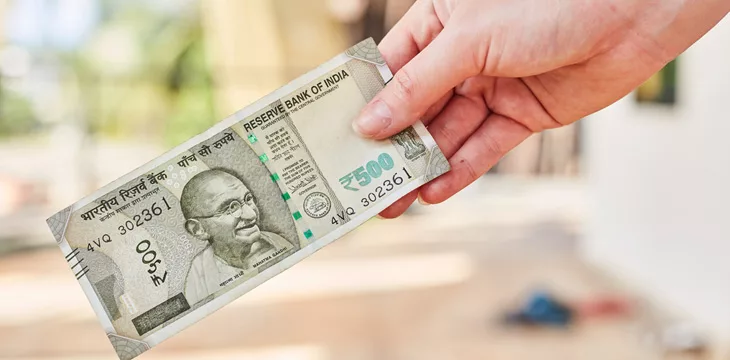|
Getting your Trinity Audio player ready...
|
The Reserve Bank of India (RBI) has proposed the integration of artificial intelligence (AI) into its instant payments system, enabling users to make conversation payments.
In a recent update on developmental and regulatory policies, RBI Chief General Manager Yogesh Dayal stated that the central bank wants to leverage AI to enhance the ease of use of the United Payments Interface (UPI) and, consequently, its reach.
UPI is India’s mobile-based instant payments system enabling inter-bank P2P and consumer-to-merchant payments. It launched seven years ago and is owned by the National Payments Corporation of India (NPCI), a partnership between India’s commercial banks and the RBI. In May, the platform processed 9.4 billion transactions, which the NPCI says is 40% of all global real-time payments.
“It is, therefore, proposed to launch an innovative payment mode viz., ‘Conversational Payments’ on UPI, that will enable users to engage in a conversation with an AI-powered system to initiate and complete transactions in a safe and secure environment,” RBI says.
A conversation payment is processed within a live messaging conversation, with the chat provider directly integrating the payment service. Users will no longer have to open a UPI app separately to make the payment.
RBI will avail the conversational payments on smartphones and feature phones-based UPI channels to target a wider audience. The facility will initially be available in Hindi and English but will expand to other languages.
RBI has yet to disclose details about the AI integration, including its risks and limitations. However, payments industry stakeholders believe it could be a big boost for the sector.
“Conversational Payments within the UPI framework will revolutionize the way users conduct transactions, harnessing the capabilities of advanced technology,” says Rahul Jainm, the CFO of the Indian payments subsidiary of Japanese conglomerate NTT Data.
“This AI-driven model ensures swift and secure transactions, safeguarding users within a consolidated environment. This will further enhance the user experience, offering a seamless, transparent, and highly convenient payment solution,” he added.
RBI has been calling on Indian banks to adopt AI and blockchain to improve customer service, reduce systemic risks and bolster their existing governance structures.
The financial services industry is expected to be among the sectors AI will impact the most. AI-powered systems will enhance efficiency and accuracy by automating repetitive tasks, reducing errors, and detecting and curbing fraud in real-time. The technology will also personalize the experience for millions of customers through predictive analytics.
It also poses massive risks, including data security and privacy. Some of these risks can be mitigated by integrating a massively-scaling blockchain network like the BSV blockchain. Key among the challenges blockchain can solve include verification of data, which in finance, is critical. Combined with digital identity, it would also create accountability for AI users.
In order for artificial intelligence (AI) to work right within the law and thrive in the face of growing challenges, it needs to integrate an enterprise blockchain system that ensures data input quality and ownership—allowing it to keep data safe while also guaranteeing the immutability of data. Check out CoinGeek’s coverage on this emerging tech to learn more why Enterprise blockchain will be the backbone of AI.
Watch: ‘Disruptive’ blockchain can be useful for India

 02-22-2026
02-22-2026 




